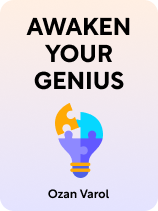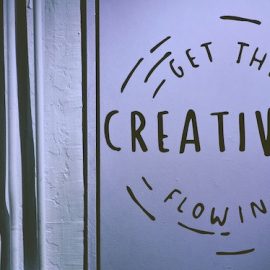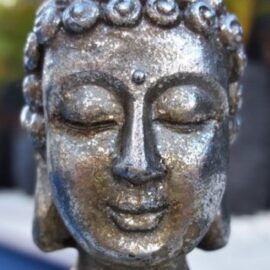

This article is an excerpt from the Shortform book guide to "Awaken Your Genius" by Ozan Varol. Shortform has the world's best summaries and analyses of books you should be reading.
Like this article? Sign up for a free trial here.
Is conformity holding you back from discovering your true self? How can you break free from societal pressures and embrace your authentic identity?
In Awaken Your Genius, Ozan Varol explores the concept of the pressure to conform. He delves into the ways our identities can limit us and offers practical strategies for overcoming these constraints. Varol’s insights challenge readers to question their assumptions and explore new perspectives.
Read more to unpack Varol’s ideas on breaking free from conformity.
Resisting the Pressure to Conform
When you were a kid, Varol says, you wanted to fit in, so you conformed to others’ expectations and imitated their ideals. Then, you never stopped conforming. The ways you conformed became part of your identity—the collection of traits that you think define you, such as your job, community, and belief system. Varol argues that your identity is an illusion that prevents you from seeing your true self, which is more complex than any identity could capture. Let’s say you identify as a punk; the punk scene values rebellion and anti-establishment attitudes. This could restrict you from exploring anything perceived as mainstream, such as classical music or entrepreneurship, even if it genuinely interests you, leading you to suppress your true self.
Varol suggests that the work of becoming your true self never ends—you’ll always experience pressures to conform or stray from your authentic path. He offers several tips that can help you overcome those pressures and stay true to your true self: detach from your identity, pay attention to the sidelines, and don’t mimic the great. Let’s look at each one in detail.
#1: Detach From Your Identity
Varol says you can detach from your identity by embracing open-mindedness, doubt, and nuance:
- Embracing open-mindedness involves becoming aware of your own biases, trying to understand others’ perspectives, and being willing to acknowledge when you’re wrong. For example, if you’re a punk, you might try recognizing the cultural value of pop music.
- Embracing doubt involves questioning your assumptions and beliefs, as well as those held by others who share your identity. For example, you might question the effectiveness of anti-establishment practices in the punk community.
- Embracing nuance involves recognizing that most issues are not black and white. For example, maybe you can be a punk and an entrepreneur.
| Conformity, Uniqueness, and Identity Crises Psychologists use optimal distinctiveness theory to describe the tension between our desire for conformity and our desire to be unique and authentic (our true selves). According to this theory, humans have an innate need to belong, but we also value our differences because they make us special. To resolve this tension, many people join fringe social groups—like the punk scene and niche online fandoms—that allow them to feel like they’re different from most people but not everyone. But the pressure to conform within those groups can be very strong. Additionally, once you begin to see yourself through the lens of these group identities, it can be hard to see yourself any other way—even if the identity no longer fits you. When your authentic desires are at odds with your need for conformity, this could result in an identity crisis—profound anxiety or confusion about who you really are. You may be tempted to choose one aspect of your identity over another—for example, you might feel like you can’t be both queer and religious. But in agreement with Varol, experts recommend dealing with identity problems by embracing open-mindedness, doubt, and nuance. According to psychologists, open-mindedness makes you more resilient—it allows you to take in disruptive ideas without destroying your sense of self. Doubt can help you unlearn or avoid forming mistaken beliefs that might hold you back in life or needlessly complicate your identity. For example, in Intuitive Eating, dietitians Evelyn Tribole and Elyse Resch suggest that you should doubt the popular notion that dieting can improve your life because it teaches you to define yourself by your appearance. Finally, embracing nuance can help you see yourself as a complex, multidimensional being instead of a static, one-dimensional persona. It may also help you accept internal contradictions (like a love of punk and entrepreneurship.) |
#2: Pay Attention to the Sidelines
Varol notes that mainstream media companies curate and recommend the media they think will be most profitable, not the media with the most intrinsic value. To discover the valuable ideas that escape most people’s attention, he recommends paying attention to the sidelines: What great people, ideas, and events are going unnoticed? This approach decreases your chance of falling back into conformist patterns. For example, instead of watching all the latest blockbuster movies (a kind of conformity), choose independent films or documentaries that explore unique perspectives or marginalized stories.
(Shortform note: Some journalists have noted that it’s increasingly common for people to automatically dismiss the mainstream media as intrinsically vacuous, even though its popularity suggests that many people agree it does have value. Some argue that this tendency may be most common among men and women with internalized misogyny. While it’s true that some things on life’s sidelines may be worth exploring, that doesn’t necessarily mean that popular phenomena aren’t worth exploring. Nor does it mean that every marginalized idea is inherently superior to mainstream ideas—for example, baseless conspiracy theories gain traction in life’s margins (and experts warn that they may appeal most to those who value non-conformity for its own sake).)
#3: Don’t Mimic the Great
Varol says that many people assume that history’s greatest figures had it all figured out and try to mimic their habits, strategies, and ways of thinking. The same goes for people they know and admire, like teachers and mentors. However, most people don’t have it all figured out, and even if they do, what works for them might not work for you. Instead of mimicking your heroes, consider all your options—then, choose the option that feels right for you. For example, say you admire Steve Jobs’ success; rather than mimicking his tyrannical leadership style, think critically about which leadership style best suits you.
(Shortform note: In The Art of Thinking Clearly, Rolf Dobelli explains the logical fallacy that underlies your desire to mimic the great—authority bias. This bias leads you to follow those you view as more knowledgeable than you, often without critical examination. To overcome authority bias, Dobelli suggests asking yourself how authorities are influencing you and if you should let them continue to do so. If that doesn’t help you, experts recommend two other approaches: creating distance between yourself and the authority figure (for example, by limiting your exposure to their work) and questioning the legitimacy of their authority (for example, you might question whether Jobs deserved to run Apple, given the negative effects of his harsh leadership style).)
Exercise
- Think of a time when you conformed to others’ expectations of you instead of thinking or acting independently. In the long run, did that help you or hurt you? Why?
- Identify a common belief or practice in your social or professional circle that you accept as normal. For example, maybe people in your field believe you need to work long hours to get the job done. Should you go on accepting this? Consider whether there’s evidence to support it, whether it aligns with your values, and how it might benefit or be challenging for you.

———End of Preview———
Like what you just read? Read the rest of the world's best book summary and analysis of Ozan Varol's "Awaken Your Genius" at Shortform.
Here's what you'll find in our full Awaken Your Genius summary:
- The reasons why you’ve abandoned your true self so far in life
- A former rocket scientist’s tips for embodying your true self
- How to achieve creative fulfillment and personal growth






